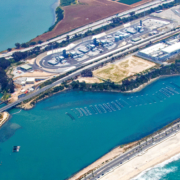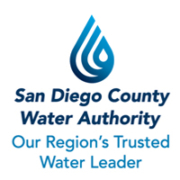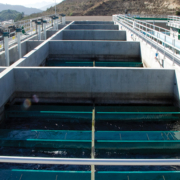The San Diego region’s water supplies remain safe to drink.
The San Diego County Water Authority and its 24 member agencies have increased regional coordination and communication to ensure the coronavirus pandemic does not impact safe and secure water service for San Diego County.
Public water supplies in the San Diego region remain safe to drink due to numerous robust treatment processes used by local and regional water providers.
Despite widespread fears about coronavirus, there’s no evidence that the virus is transmitted through treated water. The U.S. EPA recommends that Americans continue to use and drink tap water as usual.
Robust water treatment processes used by water providers
Drinking water provided by the Water Authority and its member agencies is treated by a combination of technologies – including sedimentation, filtration and disinfection – that chemically deactivate and physically remove bacteria, viruses and other contaminants.
To ensure continued water supply safety, the Water Authority and its 24 member agencies continuously monitor and test supplies throughout the treatment process, while maintaining uninterrupted operation in compliance with state and federal water quality standards.
Emergency Operations Center activated
To support continued operation of critical infrastructure, the Water Authority has activated its Emergency Operations Center, increasing the region’s ability to respond to any challenges that emerge.
The EOC supports the need for enhanced communication between the Water Authority and its member agencies as the public health crisis evolves. In addition, the agencies have back-up plans to assist each other should key personnel be unable to work.
“In these unprecedented times, the region’s water agencies are collaborating in complete solidarity to perform our vital mission of providing safe and reliable water supplies,” said Sandra L. Kerl, general manager of the Water Authority. “We are taking strategic, precautionary steps to ensure the region’s water security.”
‘Critical’ water agency staff continue work
Water agency employees identified as critical to operation and maintenance of key infrastructure will continue to report to work and conduct normal job functions while complying with enhanced safety precautions such as social distancing measures.
Non-critical staff at many agencies, including the Water Authority, are telecommuting or will begin remote work shortly to minimize the potential for virus transmission.
Until further notice, the Water Authority will hold its Board meetings remotely. A schedule of meetings, Board documents and live streaming of meetings will continue to be at www.sdcwa.org/meetings-and-documents.
Many water agencies across the region, including the Water Authority, have temporarily closed their offices to the public. Residents should consult their water provider’s website for additional information. Residents who don’t know what agency provides their water can find out by entering their address at www.sdcwa.org/find-your-water-district/.
How to stay healthy – Coronavirus
According to the Centers for Disease Control and the World Health Organization, coronavirus is spread from person to person contact, breathing or contacting respiratory droplets from an infected person, and contacting surfaces contaminated with the virus.
Here’s what you can do to stay healthy:
- Wash your hands often with soap and water for at least 20 seconds. If soap and water are not available, use an alcohol-based hand sanitizer.
- Avoid touching your eyes, nose, and mouth with unwashed hands.
- Avoid close contact with people who are sick.
- Stay home when you are sick.
- Cover your cough or sneeze with a tissue.
- Clean and disinfect frequently touched objects and surfaces.
For more information about virus prevention and treatment, go to the CDC’s website or the County of San Diego Health & Human Services Agency.






